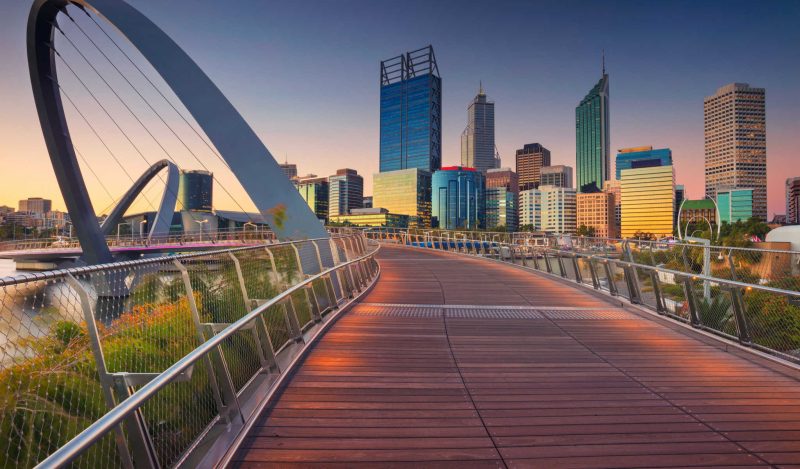After 963 days in a State of Emergency (SoE), Western Australia is finally returned to some semblance of normalcy on the 4th of November with the SoE finally expiring.
However, this does not mean that it’s over for good. Premier Mark McGowan and his Labor government used their majority in the Upper and Lower Houses to force replacement legislation through parliament in October. This was in spite of vehement pushback from the opposition, the crossbench, and the public.
In what is essentially a rebranding of the Public Health Act 2016 SoE powers, the new Emergency Management Amendment (Temporary COVID-19 Provisions) Bill 2022 allows the government to renew its emergency powers on a thrice-monthly basis over the next two years.
McGowan has already foreshadowed its use, stating just days before the SoE expired, “If we have a spike, a new variant comes along, something occurs that we haven’t foreseen, it’s there as a back-up measure should it be required.” And sure enough, a new wave of ‘grandchildren of Omicron’ variants is expected right on time for Christmas.
The key difference between the new legislation and the former is that the Covid pandemic response has been removed from the purview of qualified medical and health professionals and put into the hands of the Police Commissioner.
This is problematic on two counts. First, the legislation requires that the Police Commissioner consult with the Chief Health Officer; however there is no requirement that the Police Commissioner act according to the advice given. Second, the Police Commissioner is not an elected representative and is not answerable to the public or the parliament.
Senator Dr Brian Walker, a medical doctor and strong opposer of the bill, said at a protest outside Parliament House on the 11th of October:
“This bill stinks… taking [the pandemic] out of the hands of medical practitioners… putting it into the hands of a policeman. And I don’t know about you, but I do not want to live in a police state.”
Police state is an apt description, as the powers afforded to the Police Commissioner under this legislation are extreme and threatening.
Section 77 has received the most attention for the astonishing breadth of powers afforded to the Police Commissioner and his designated ‘authorised COVID-19 officers’ who, under this legislation, can: take control of private property, including vehicles or ‘things;’ break and enter your home, vehicle or business, without a warrant and without your consent; forcibly detain people in isolation; compel you to provide your personal information; compel the closure of roads, businesses, places of worship and other routes or places of gathering; and, most shockingly, force anyone deemed to have been exposed SARS CoV-2 to submit to, “infection prevention and control procedures,” which includes forced vaccination (Section 77N.).
The prospect of forced vaccination sparked howls of terror and outrage in the public sphere, but in fact the legal allowance for forced vaccination was already passed in the Public Health Act 2016 under Section 158.
Just about the only thing that the Police Commissioner cannot do under the new provisions is to close the state border. The contents of the bill are only half the problem, however. The way in which the legislation was steamrolled through parliament is also cause for concern.
McGowan’s government withheld the details of the bill until 6pm the night before it was to be debated in the Lower House, denying the opposition and crossbench any reasonable amount of time to review the bill, seek advice, formulate questions and arrive at a considered position.
Every member of the opposition and crossbench opposed the bill. Thousands of people turned up to protests held outside Parliament House. MPs and Senators were inundated with correspondence from the public expressing concern and dismay.
Any debate that was had was arbitrary anyway. McGowan had already announced the new laws to the media with cocksuredness, and the Labor majority fell in line. There was a widespread understanding that Labor MPs and Senators were not to cross the floor on this bill, lest there be consequences, and that this is indicative of the kind of leadership that they are under, though no one will say this on the record.
The nub of the issue with McGowan is that, though he operates within a democratic system, he behaves like a dictator. He is intolerant of people and viewpoints that he does not understand, ‘othering’ them with language and laws that serve to push these groups further to the margins of our society. His government and associated departments are famously cagey, and his segregation measures were some of the most extreme in the world.
With the introduction of this new legislation, McGowan is insisting that the public trust that future measures taken will be proportionate, reasonable, and fair.
Yet this is the same Premier who thought it appropriate to send police to a Perth café to arrest the unvaccinated owner and forcibly pack her into a paddy wagon; who oversaw police raids on multiple other small businesses including chiropractors and cafes, to ensure enforcement of vaccine mandates; who enforced travel vaccination mandates on children as young as 12 well into 2022, when it was known that the injections did not prevent transmission, and were of questionable necessity and safety to young people; whose quarantine rules were enforced under threat of prison, a threat that was carried out on multiple occasions.
This is not the track record of a proportionate, reasonable and fair government. This is an extremist, police-state style of governance, whereby the ruling class (with complicit media in pocket) barely bothers to persuade, opting rather to rule by threat and punishment.
For the time being, the police state lies dormant. The SoE has expired, and we have returned to some kind of nanny-state normal.
However, the police state infrastructure is in place, and can be engaged at any time should the Premier and his Police Commissioner think it reasonable and necessary. Whatever that means.
Join the conversation:


Published under a Creative Commons Attribution 4.0 International License
For reprints, please set the canonical link back to the original Brownstone Institute Article and Author.









